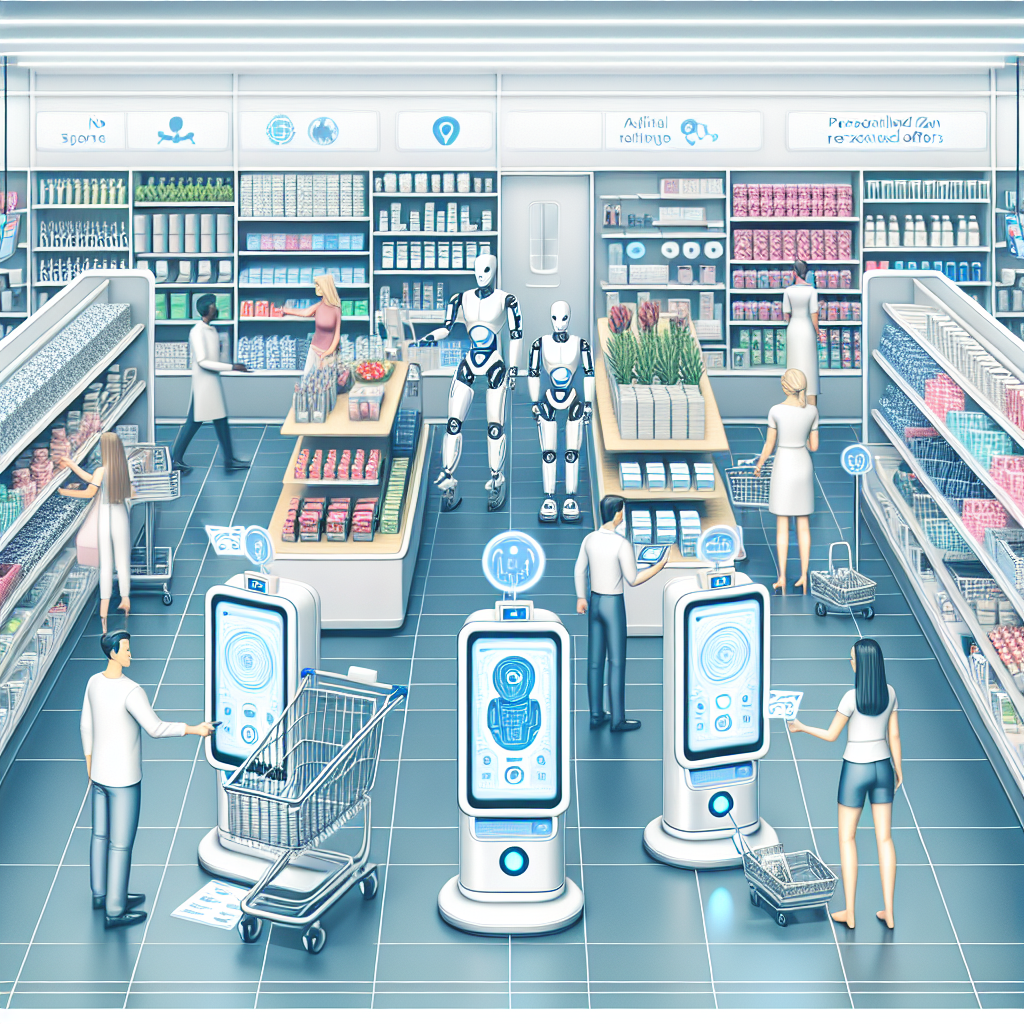Artificial Intelligence (AI) has been making significant waves in various industries, and one sector that is undergoing a major transformation is the retail industry. AI is revolutionizing the way retailers operate, from enhancing customer experiences to improving operational efficiency. In this article, we will explore how AI is transforming the retail industry and the potential benefits it offers.
1. Personalized Shopping Experiences
One of the key ways AI is transforming the retail industry is through personalized shopping experiences. AI-powered algorithms can analyze customer data, such as purchase history, browsing behavior, and preferences, to create personalized recommendations for shoppers. This allows retailers to offer products and promotions that are tailored to each individual customer, increasing the likelihood of a sale.
AI can also be used to personalize the shopping experience in-store. For example, retailers can use AI-powered sensors to track customer movements and behavior in real-time, allowing them to offer personalized recommendations and promotions based on the customer’s location within the store.
2. Inventory Management
AI is also revolutionizing inventory management in the retail industry. Retailers can use AI-powered algorithms to analyze historical sales data, current trends, and other factors to predict demand and optimize inventory levels. This helps retailers minimize stockouts, reduce excess inventory, and improve overall efficiency.
AI can also be used to automate the replenishment process, ensuring that products are restocked in a timely manner. This not only improves customer satisfaction by reducing out-of-stock situations but also helps retailers save on storage costs and minimize wastage.
3. Customer Service
AI-powered chatbots are increasingly being used by retailers to improve customer service. These chatbots can engage with customers in real-time, answering their queries, providing product recommendations, and even processing orders. This not only improves the overall customer experience but also helps retailers reduce costs by automating certain aspects of customer service.
AI can also be used to analyze customer feedback and sentiment across various channels, such as social media and online reviews, to identify trends and improve customer service strategies. This allows retailers to proactively address customer issues and enhance customer satisfaction.
4. Fraud Detection
AI is also playing a crucial role in fraud detection and prevention in the retail industry. AI-powered algorithms can analyze vast amounts of data, such as transaction history, customer behavior, and external factors, to identify suspicious activities and flag potential fraud cases in real-time. This helps retailers protect themselves against fraudulent transactions and minimize losses.
AI can also be used to enhance security measures, such as facial recognition technology and biometric authentication, to ensure that only authorized individuals have access to sensitive information and systems. This helps retailers build trust with customers and maintain a secure shopping environment.
5. Supply Chain Optimization
AI is transforming supply chain management in the retail industry by optimizing processes and improving efficiency. AI-powered algorithms can analyze data from various sources, such as suppliers, distributors, and transportation providers, to optimize routes, minimize delays, and reduce costs. This allows retailers to streamline their supply chain operations and improve overall performance.
AI can also be used to predict and mitigate potential disruptions in the supply chain, such as weather events, labor strikes, or transportation delays. By proactively identifying and addressing these risks, retailers can ensure that products are delivered on time and maintain customer satisfaction.
FAQs:
Q: How can retailers leverage AI to enhance the customer experience?
A: Retailers can leverage AI to personalize shopping experiences, optimize inventory management, improve customer service, detect fraud, and optimize the supply chain. By using AI-powered algorithms to analyze data and automate processes, retailers can enhance the overall customer experience and drive business growth.
Q: What are the potential challenges of implementing AI in the retail industry?
A: Some potential challenges of implementing AI in the retail industry include data privacy concerns, integration with existing systems, and the need for skilled personnel to manage AI technologies. Retailers must also ensure that AI algorithms are transparent, ethical, and compliant with regulations to build trust with customers and stakeholders.
Q: How can small and medium-sized retailers benefit from AI?
A: Small and medium-sized retailers can benefit from AI by leveraging cloud-based AI solutions, partnering with AI service providers, and investing in AI training for their employees. By adopting AI technologies, smaller retailers can compete with larger competitors, improve operational efficiency, and enhance the customer experience.
In conclusion, AI is transforming the retail industry in various ways, from enhancing customer experiences to improving operational efficiency. By leveraging AI-powered algorithms and technologies, retailers can personalize shopping experiences, optimize inventory management, improve customer service, detect fraud, and optimize the supply chain. While there are challenges in implementing AI, the potential benefits for retailers are significant, and those who embrace AI are likely to gain a competitive edge in the evolving retail landscape.

